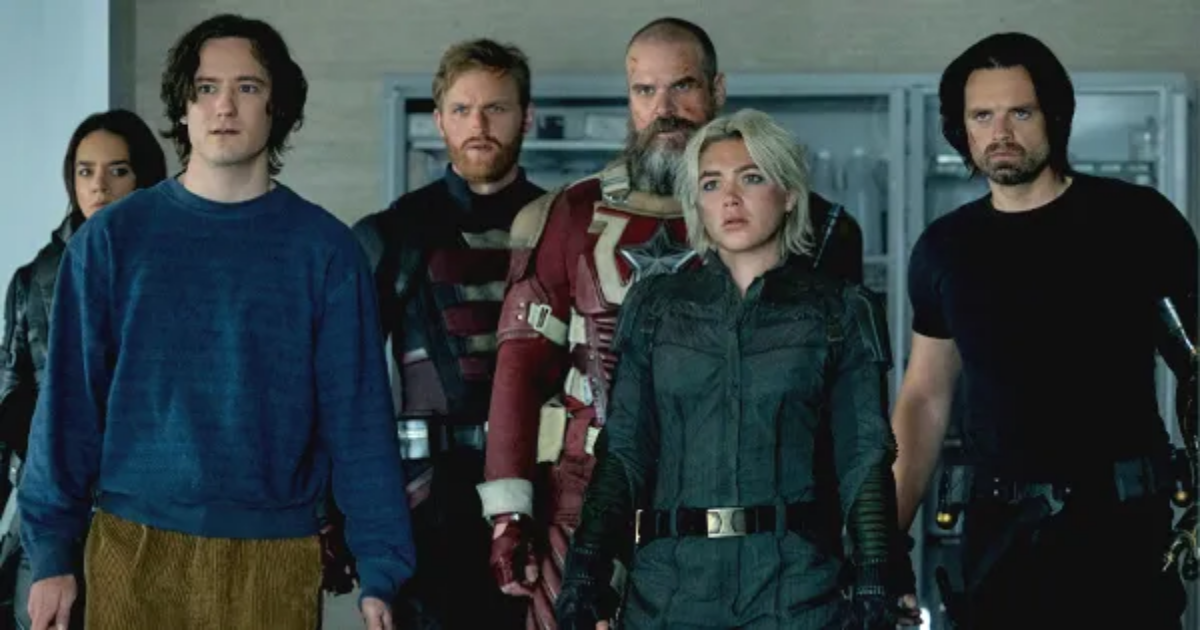Just when you thought you were done with the Marvel Cinematic Universe, they pull you back in. Marvel’s Thunderbolts* is a lot like its characters: seemingly inconsequential but ultimately a very big deal for the franchise. The 36th film in the MCU is garnering positive reviews ahead of its release this weekend, and that’s a relief following the poor critical reception of Captain America: Brave New World in February. Among the elements being lauded are the movie’s depiction of mental illness and the performances by Florence Pugh and Lewis Pullman.
Here’s what critics are saying about Thunderbolts*:
The initial thought might be to dismiss Thunderbolts as an also-ran. That would be a mistake, since this flick is one of Marvel’s more successful efforts of late.
Thunderbolts* is a great superhero flick and one of the biggest surprises of 2025.
The sort of level that more superhero films should be at… Thunderbolts is a pleasant surprise.
Thunderbolts is essential summer movie escapism, and proof that perhaps the lethargic Marvel Studios can still capture lightning in a bottle.
Precious few of these movies rise to the level of essential viewing… However frivolous it may sound, Schreier’s scrappy ensemble effort is anything but a one-off.
Until its climactic collapse, Thunderbolts is good enough.
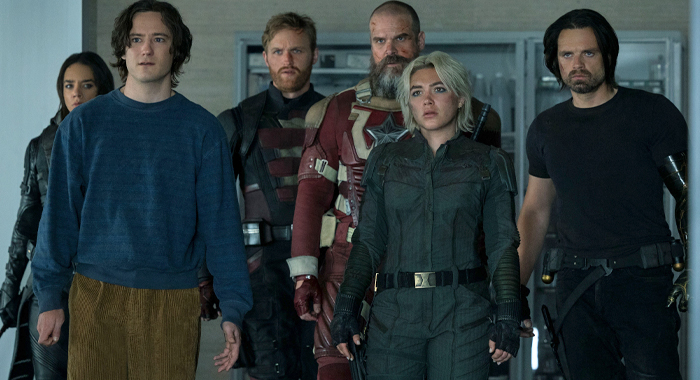
If you’ve found yourself falling out of love with the MCU over a messy Multiverse Saga, Thunderbolts could be just the movie to pull you back in.
Thunderbolts is a nice reminder of what this company is capable of at its best.
This is what fans have been waiting for.
It’s the rare movie that can be appreciated by casual Marvel fans and diehards alike.
It makes for the kind of olive branch to casual viewers this franchise sorely needs — if only to build up enough goodwill for the next noisy outing whose success depends on how many returning actors you recognize.
Thunderbolts is one of the MCU’s best.
Thunderbolts is not just the best Marvel movie in a while, it is top-tier Marvel.
Thunderbolts goes back to the basics of what’s worked before, and creates one of the most enjoyable, fun, and genuinely moving MCU films since Endgame.
It’s one of the best movies of The Multiverse Saga to date.
The secret sauce of Marvel’s best movies? It’s always been the simple fact that even polar opposites can amount to a greater sum than their parts. Thunderbolts is that to a T.
Jake Schreier’s Marvel debut is among the best and most self-possessed of these movies since Thanos snapped the mega-franchise in half, [but] its pleasures still feel like faint echoes of the series’ previous highs.
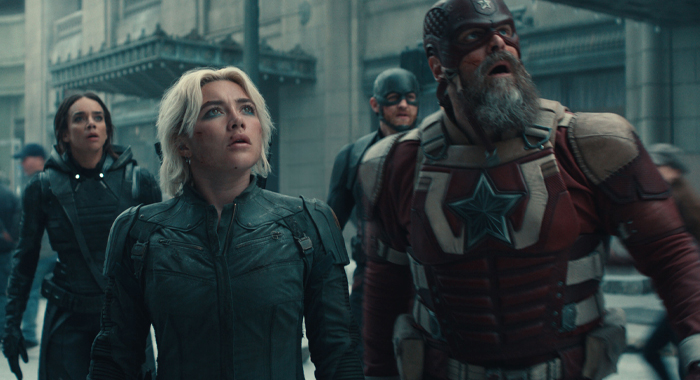 (Photo by ©Marvel Studios)
(Photo by ©Marvel Studios)
Director Jake Schreier gives this flick a slightly different look and feel from most Marvel works.
Thunderbolts evokes a different energy… [It’s] one of the most grounded and effective entries the MCU has delivered in quite some time.
Because of the themes Thunderbolts is exploring, this has a different tone than we’re often used to in the MCU, and it’s a welcome change.
The dysfunctional team-up is nothing new, not even in the MCU (hi, Guardians of the Galaxy), yet it’s the strength of the cast that elevates it.
It’s still an MCU flick to its core, but director Jake Schreier manages to put his indie sensibilities to good use throughout.
Thunderbolts is another messy Marvel movie, and it’s for the same reason that a lot of these movies are messy: they are so caught up in dropping exposition and lore and sneaking in little hints for the future that they forget we’re here to see a movie.
Thunderbolts is a Suicide Squad done right.
I have already read people comparing the Thunderbolts to DC’s Suicide Squad. I think it’s worth noting, though, that as much as those teams (and their films) operate in a similar fashion, the superhero movie Marvel is really cribbing from here is their own Guardians of the Galaxy.
Watching Thunderbolts brought back feelings of watching the first Avengers film.
The movie’s many verbal references to depression, substance abuse, or the writings of philosopher Søren Kierkegaard (yes, really) establish a genuine thematic ambition Marvel hasn’t seen in a while — not at least since 2016’s Doctor Strange, a story steeped in death anxiety and confronting mortality.
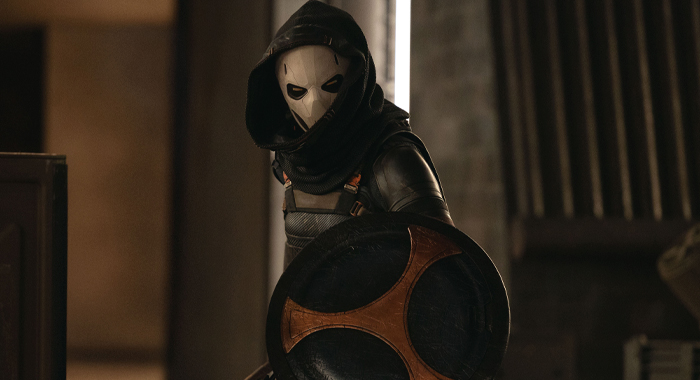
It is a smart and amusing script by Eric Pearson and Joanna Calo.
Calo and Pearson craft raw, emotionally grounded storytelling that sets their script apart from recent Marvel entries. Their work weaves unexpected vulnerability and character depth, creating an resonance that feels both refreshing and impactful.
Thunderbolts*, along with the best movies of the MCU, knows that character is king, story matters, and all the other superhero elements need to be built out of that.
Patchy as the film may be, the ennui felt by its characters is thematically fascinating.
At its most basic, it’s just fantastic to have an MCU film that’s about more than taking out the bad guy.
Thunderbolts might not be the deepest exploration of depression you’ll ever see, but it’s impressive that writers Eric Pearson and Joanna Calo have managed it at all in a mainstream summer blockbuster.
I won’t give you any platitudes about Thunderbolts being the best depiction of mental health in the MCU, or in any movie, but one thing the film does very well is depict how messy and imperfect mental health can be.
Screenwriters Pearson and Calo only scratch the surface with these themes instead of stating anything particularly meaningful… There could have been more dissection and discussion on these darker topics.
 (Photo by Chuck Zlotnick/©Marvel)
(Photo by Chuck Zlotnick/©Marvel)
Ultimately, Thunderbolts is a story of redemption and second chances – a fitting reflection of the MCU itself.
It has self-conscious fun positioning itself as a dark Avengers riff.
Thunderbolts* is nothing if not self-aware.
There is just enough humor sprinkled throughout to deliver the comedic relief that is needed to get through such a dark and heavy movie.
It’s a film with some of the most fun… comedic moments within this universe in years.
Thunderbolts mostly stays away from the tiresome forced humor of the MCU, however, David Harbour seamlessly blends his unique comedic timing while still adding an emotionally impactful take.
Please note Ghost’s reactions to some of the Red Guardian’s commentary or Walker being an ass – comedic gold.
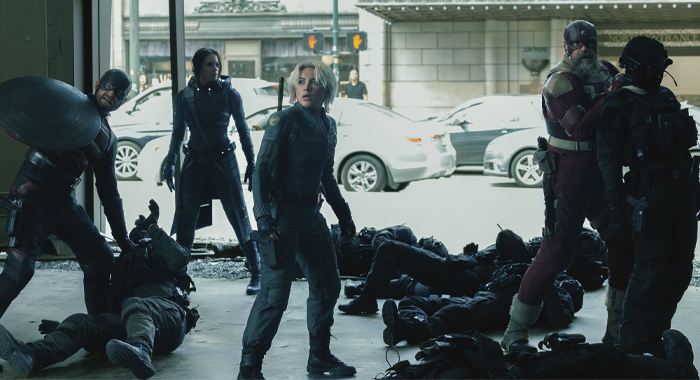
Thunderbolts has some of the best Marvel action sequences that we have seen in a while, with CG that is on point and looks pretty darn fantastic.
Much of the action is captured in-camera, with practical effects and well-choreographed stunts, sometimes shot in long takes… Thunderbolts feels more grounded in its approach to action than many of the franchise’s other entries as of late.
[It has] some of Marvel’s best action sequences, in part because the heroes can’t fly around, firing undefined, but plot-serving blasts. Fighting each other makes for entertaining, in-your-face battles. Fighting together makes for some awesome sequences.
It’s much less concerned with blowing things up, though there are some great action sequences.
Fans hankering for big-screen action do get their moments…however, the movie is more interested in its flawed characters and their mental states in particular.
An early hallway battle in a smoke-filled corridor demonstrates that director Jake Schreier is intent on adhering to the MCU’s typical murky-action template, and just about every subsequent sequence set in low light is a muddy mess.
One of the more notable observations about Thunderbolts is that it is one of the best-looking MCU films in recent years.
Thunderbolts [is] one of the best-looking Marvel films in quite some time.
Top-flight VFX help Schreier and Co. set this in a realer world.
The cinematography by Andrew Droz Palermo is necessarily dark, but never oppressive, and matches the tone of this story beautifully.
The film favors a muted gray-and-gloomy color scheme throughout, which may fit its thematic concerns but prevents the material from popping.
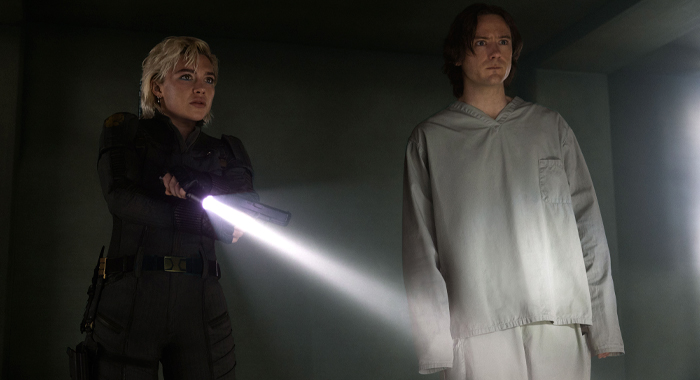 (Photo by Chuck Zlotnick/©Marvel)
(Photo by Chuck Zlotnick/©Marvel)
Chief among them is Pugh, bringing real gravitas to Yelena in a darker portrayal than what she did in Black Widow.
Pugh anchors Thunderbolts with a vulnerability and emotional weight that’s been on sorely missed within the MCU.
Pugh was a standout in Black Widow, often stealing the show, and she does the same in Thunderbolts.
Russell is another standout as the dime-store Captain America.
The real standout here comes in Lewis Pullman… Bob is a character with several sides to him, and Pullman knocks every one of them out of the park.
Behind his lopsided smiles and off-kilter energy is something utterly grim, leading to the best moments of the film, and an ominous, despairing third act that coalesces all the film’s messiness into something surprisingly poignant.
Pullman is brilliant in a tricky part where he must balance the character’s broken mind, showcasing the dangers of untreated mental illness in a way that can be both menacing and deeply sympathetic. It’s quite a dark character and motif for Marvel and Disney Studios to play with for a brand that primarily markets itself to kids, but it’s also tamed in its mature themes and serves as a good entry point on the topic for its growing audience.
Pullman’s tremendously sympathetic performance, characterized by wet puppy eyes and a shaky voice, is powerful enough to thaw even the iciest critics, a phenomenon I bore witness in an early screening surrounded by seen-it-all pros.
The third act of this film works because you’re invested in Bob.
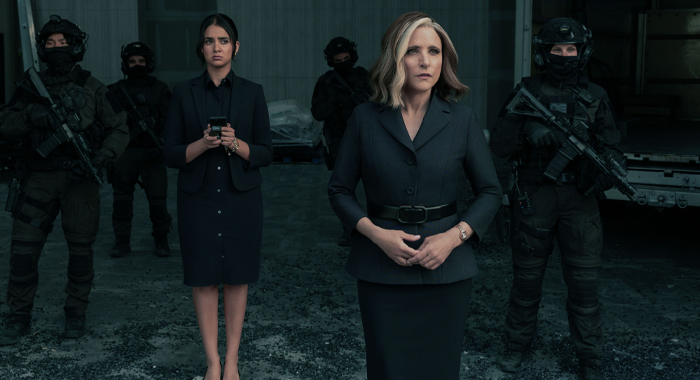 (Photo by Steve Swisher/©Marvel)
(Photo by Steve Swisher/©Marvel)
In Thunderbolts, we finally get an interesting and threatening woman villain with Louis-Dreyfus’ Valentina… You’ll love to hate her.
Louis-Dreyfus finally looks and feels comfortable in her villainous hues, allowing the movie the necessary gravitational pull to make its antiheroes look all the more heroic.
[Sentry/Void] is maybe the first time that Marvel has made the villain an overt metaphor. The closest would be Killmonger in Black Panther, which is one of their most effective villains.
The pacing could be tighter, especially in the first two acts, where there isn’t a ton of forward momentum, though the third act does make up for it.
As much as it tries to stand alone within the MCU, the movie can’t help but be a bit hurt by the wider universe… There’s not really any tension as you know these characters are back in Avengers: Doomsday.
The few times Thunderbolts does feel inauthentic is when the tie-ins to the larger universe are heavily emphasized.
 (Photo by Chuck Zlotnick/©Marvel)
(Photo by Chuck Zlotnick/©Marvel)
Audiences [will] not only quickly root for them but eagerly anticipate their return.
Thunderbolts represents the first time since possibly Ryan Coogler’s Black Panther: Wakanda Forever that the idea of the characters in one of these films getting another day in the sun isn’t just something to be excited about, but a gift the characters fully deserve.
I can’t say I’m looking forward to whatever the next gen of Avengers turn out to be, but zooming in on this particular crop of characters, I’m not even remotely excited to see them return, either individually or as a team.
The post-credit scene is going to blow your mind and is insanely important for what is to come in the MCU. I, for one, cannot freaking wait.
Thunderbolts may not reinvent the wheel, but it serves as a cinematic olive branch to cinephiles holding out hope that better days for Marvel are on the horizon.
It feels like Thunderbolts is the right kind of course correction to get us back to what made this a billion-dollar franchise: characters we are invested in on every level.
The juggernaut movie series is on its way to recapturing its mojo.
The Marvel Cinematic Universe needed this…Is it a movie that gets the MCU back on track? Not quite. That being said, it’s a necessary success that could change momentum if the next few efforts are up to snuff.
Hopefully the studio carries this creative momentum into The Fantastic Four and the new Avengers sequels. It would be a real tragedy if they didn’t.
Thunderbolts* opens in theaters on May 2, 2025.
Thumbnail image by ©Warner Bros.
On an Apple device? Follow Rotten Tomatoes on Apple News.
